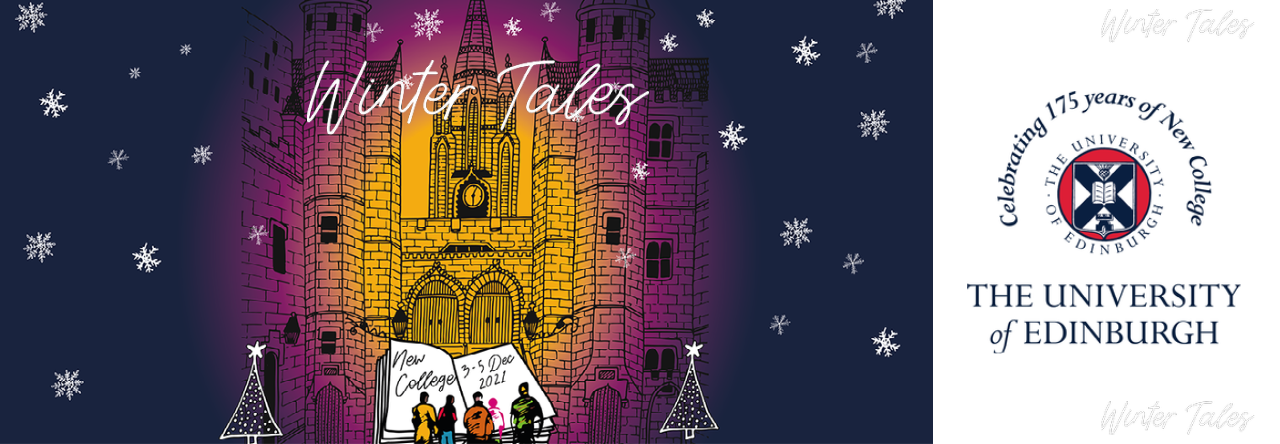Friday 3rd December, 2.30 – 3.30pm Book here
Chaired by Ulrich Schmiedel. Panelists: Laura Jeffery, Victoria Williamson, Marjorie Lotfi Gill, Nadeen Dakkak
What can literature do to resist the hostile environment? In the UK, hostile environment policies were introduced to make the life of people who cannot prove they have a right to live here as unbearable as possible. The criminalisation of refugees and refugee relief is a concerning and controversial issue across the globe. This panel features renowned authors, academics, and activists who come together to present facts and fictions about migration, point to possible futures, and ponder the role that literature can have in making societies more welcoming. Literature might seem too lofty to make a difference, but it can have crucial – sometimes surprising – consequences for how we live together.
Chaired by Ulrich Schmiedel, who is Lecturer in Theology, Politics and Ethics at the University of Edinburgh. The Deputy Director of Edinburgh’s Centre for Theology and Public Issues, he has written widely on political and public theology. He also serves as Chair of the Research Advisory Board of A World of Neighbours, a multi-faith network of actors working with migrants across Europe. Ulrich is the author of Elasticized Ecclesiology: The Concept of Community after Ernst Troeltsch (2017), The Claim to Christianity: Responding to the Far Right (2020), written with Hannah Strømmen, and Terror und Theologie: Der religionstheoretische Diskurs der 9/11-Dekade (2021) for which he was awarded the University of Munich’s Habilitation Prize in the Humanities.
Laura Jeffery is Professor of Anthropology of Migration at the University of Edinburgh. Her research interests include participatory arts-based methods and creative engagement with displacement and migration via projects such as Arts for Advocacy in Morocco and the regional Maghreb Action on Displacement and Rights (MADAR) Network Plus. Her relevant publications include a co-edited Crossings: Journal of Migration & Culture special issue on creative engagement with migration.
Nadeen Dakkak is a Postdoctoral Fellow at the Institute for Advanced Studies in the Humanities and Alwaleed Centre for the Study of Islam in the Contemporary World at the University of Edinburgh. She completed her PhD in English and Comparative Literary Studies at the University of Warwick in 2021, where her research examined migration to the Arab Gulf States in Arabic fiction. She has published “Migrant Labour, Immobility and Invisibility in Literature on the Arab Gulf States” in Mobilities, Literature, Culture, edited by Marian Aguiar, Charlotte Mathieson, and Lynne Pearce (Palgrave Macmillan, 2019), and has an article in the Journal of Arabian Studies on Mia Alvar’s In the Country.
Victoria Williamson is a teacher and award-winning children’s author. After studying Physics at the University of Glasgow, she spent two years teaching maths and science in Cameroon with VSO, before returning to the UK to qualify as a primary school teacher and gain a Master’s Degree in Special Needs in Education. After spending a further two years in Africa with VSO training teachers in Malawi, and then studying for a degree in Mandarin Chinese at Yunnan University, her subsequent teaching work in the UK has been with children from diverse backgrounds with a range of additional support needs. She is passionate about creating inclusive worlds in her novels where all children can see a reflection of themselves in a heroic role. Her experiences teaching young children in a school with many families seeking asylum inspired her debut novel, The Fox Girl and the White Gazelle (Floris Books, 2018), an uplifting tale of friendship between Glaswegian school bully Caylin and Syrian refugee Reema.
Marjorie Lotfi’s poems have won competitions, been published in journals and anthologies in the UK and US (including The Rialto, Gutter, Ambit and Rattle and The Scotsman), and have been performed on BBC Radio 4. She was poet in residence at Jupiter Artland and writer in residence for Spring Fling and the Wigtown Book Festival. Marjorie also founded the Belonging Project, considering the experiences of refugees with over 1,500 participants, and was commissioned by Enterprise Music Scotland to write Pilgrim, a sequence about migration between Iran and the US. Marjorie is one of the first recipients of the Scottish Book Trust’s Ignite Fellowship, a fund that supports substantial on-going projects, and is a founder and director of Open Book, a charity reading in community settings across Scotland.
Please, be aware that times and details of the events might still be subject to change.
Also by registering for this event you are agreeing to us using your details for track and trace purposes.
